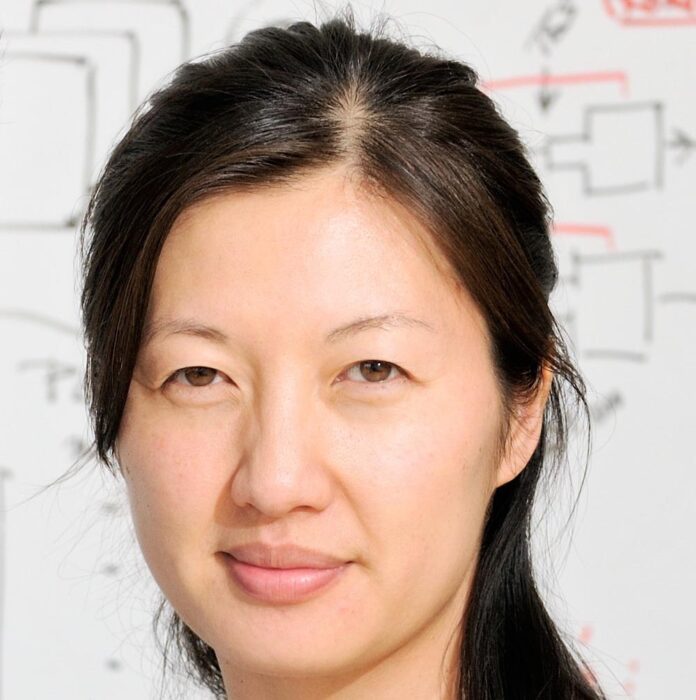
On Thursday 12th May at 4PM (BST), Alice Ting will deliver the 2022 John Kendrew Lecture over Zoom. Alice’s talk, ‘Chemogenetic and optogenetic technologies for probing molecular and cellular networks’ is free and open to all who are interested.
Alice Ting is Professor of Genetics, Biology and, by courtesy, Chemistry at Stanford University, a post she has held for the past eight years. Since 2017 she has also been a Chan Zuckerberg Biohub investigator. Her group is dedicated to the development of new technologies to map molecules, cells and functional circuits and applying these to better understand signalling in mitochondria and in the mammalian brain. Utilising both chemical and biological methods, Alice has invented new approaches such as proximity labelling, which has revolutionised the study of cells and neurons.
She was born in Taiwan, raised in Dallas, Texas, and went on to receive her A.B. undergraduate degree in Chemistry from Harvard in 1996. She completed a Ph.D., also in Chemistry, under the advisory of Peter Schultz at the University of California, Berkely, and then completed postdoctoral studies in Biochemistry with Roger Tsien at the University of California, San Diego. She started her independent research group at MIT in 2002, before joining Stanford University in 2016.
Alice’s research has been recognised with the McKnight Technological Innovations in Neuroscience Award from the McKnight Foundation in 2005, the Arthur C. Cope Scholar Award from the American Chemical Society in 2010 and three NIH Director’s Awards from the National Institute of Health; the Director’s Pioneer Award in 2008 and the Director’s Transformative Research Award in 2013 and again in 2018.
Lecture abstract
Where a protein is localized in the cell exerts tremendous influence over its function, interaction partners, dynamics, and modifications. Enzyme-catalyzed proximity labeling (PL) has emerged as a powerful and generalizable method to map the locations and interactions of endogenous proteins in the context of living cells, applicable to even membraneless organelles and transient interactions that are inaccessible to traditional methods such as affinity purification. I will give a brief account of PL method development, including directed evolution of the PL enzymes APEX and TurboID, and then describe new efforts to extend PL to RNA and proteome trafficking.
In the second part of the talk I will describe recent work on the development of scalable, single-cell molecular recorders of past cellular events, and the application of these recorders to neuroscience and mitochondrial biology.
Background information
The John Kendrew lecture is named in honour of LMB Nobel Laureate John Kendrew. It is one of a series of named lectures organised by the LMB and given by eminent scientists from around the world.
John Kendrew was born in Oxford in 1919 and first came to Cambridge in 1936 as a student at Trinity College, earning a First Class Honours in Chemistry. During World War Two, John was recruited to the Air Ministry Research Establishment where he worked on early radar applications, before returning to Cambridge in 1946 to join Max Perutz at the MRC Unit for Research on the Molecular Structure of Biological Systems (now the MRC Laboratory of Molecular Biology). His research focused on protein structure and in 1958 he produced the first three-dimensional structure of a protein: myoglobin. This discovery helped Max to discover the structure of haemoglobin the following year and, in 1962, they were jointly awarded the Nobel Prize in Chemistry. In the 1960’s John jointly founded the European Molecular Biology Organisation (EMBO) and helped create the European Molecular Biological Laboratory (EMBL) where he was the inaugural Director. He also founded and was Editor in Chief of the Journal of Molecular Biology. From 1981-1987 he was President of St John’s College, Oxford. He died in Cambridge on 23rd August 1997.
Further references
Alice Ting
Poster for the John Kendrew Lecture
Zoom link for the John Kendrew Lecture
John Kendrew Biography
LMB Named Lectures